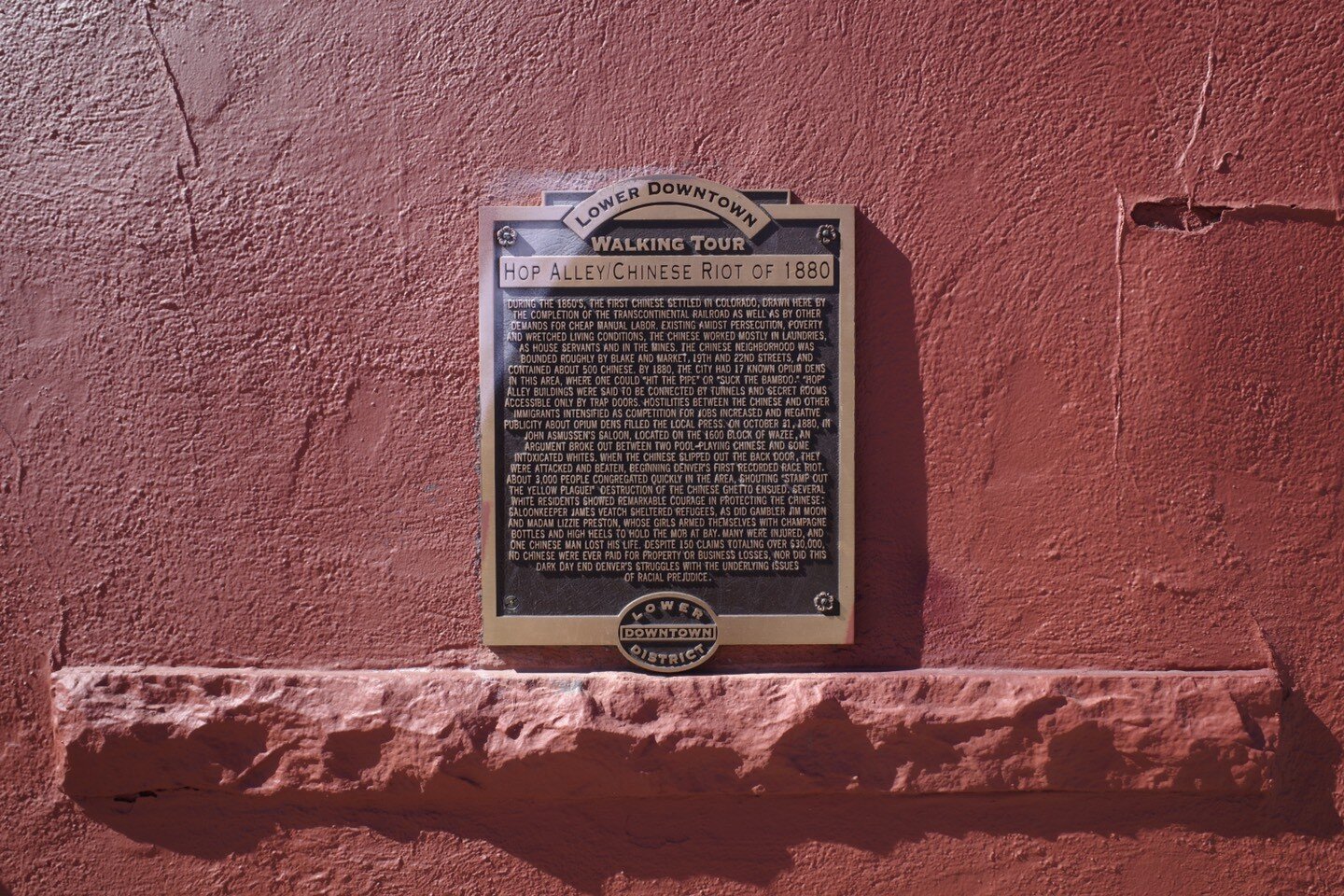142 years later, the City of Denver officially apologizes for 1880 anti-Chinese race riot

DENVER — On Saturday, April 16, the Denver Mayor Michael Hancock signed a letter officially apologizing to Chinese immigrants and their families for the city’s role in the anti-Chinese riot that took place on Halloween in 1880.
The event will took place at the University of Colorado, Denver’s Lawrence Street Center. Colorado Asian Pacific United (CAPU) organized the event with the city.
Speaking at the event, CAPU chair Joanne Liu said the apology was a "monumental milestone" that "signifies a great step forward" in Denver valuing the contribution of Chinese immigrants and their descendants.
Hancock, called the 1880 riot a "shameful chapter of Colorado history," adding that he hopes the apology provides a sense of closure for the descendants of the victims of the riot, some of whom were in attendance.
In the apology letter, Hancock said the city is committed to "the establishment of an Asian Pacific Historic District, sponsoring the painting of public murals depicting the history and culture of Asian Pacific Coloradans, partnering on the development of a public education program about Asian Pacific Coloradans, and founding an Asian Pacific American community museum, which will be the first of its kind in the Rocky Mountain Region."
You can read the official apology letter here.
On October 31, 1880, a saloon brawl between some intoxicated white customers and two Chinese men spiraled from the bar into the street. A white mob formed, and they targeted Chinese residents and destroyed every Chinese business in the area, for which there has never been any compensation. One person, a Chinese man named Look Young, died in the riot. The mob hanged him. The murderers were never punished.
The riot erupted at a time when anti-Chinese panic was burning through the entire West. More than 150 such riots occurred during the 1870s and 1880s.
Two years ago, Denver Mayor Michael Hancock signed a proclamation making October 31, 2020, “Denver’s Chinatown Commemoration Day.”
“While only a small plaque commemorates this tragic event at 20th and Blake streets in LoDo today, we all share a responsibility every day to share this history and build bridges across communities to ensure something like this never occurs again,” Hancock wrote as part of the proclamation.
The plaque Hancock mentioned, however, is not without controversy. Historians and critics have pointed out the plaque’s inaccuracies, as well as the fact that it sanitizes the violence of the riot and emphasizes the heroism of white residents. The plaque makes no mention of Young — it says “one Chinese man lost his life” — but does name four different white people.

“I think the plaque itself is problematic in a number of ways,” William Wei told Rocky Mountain PBS in a 2020 interview. Wei is a professor at the University of Colorado, Boulder and the former Colorado State Historian.
Wei said the title of the plaque — which includes the phrase “Chinese Riot” — is misleading. “It wasn’t a Chinese riot,” he explained, “it was an anti-Chinese race riot.” Wei also pointed out that the plaque’s location at the intersection of 20th and Blake is not where the violence occurred.
“As a historian, I’m very interested in ensuring that we have a complete and accurate understanding of our history. And when I say ‘our history,’ I’m talking about American history, which includes Chinese Americans and other people of color.”
[Related: How violence against Asian Americans has grown and how to stop it, according to activists]
Many cities in California, including San Francisco, have officially apologized to Asian American and Pacific Islander communities in recent years amid rising xenophobia and anti-Asian violence. Hate crimes against Asian Americans in major U.S. cities surged by nearly 150 percent in 2020, even as the number of overall hate crimes declined.
From PBS NewsHour:
“Since the start of the pandemic in early 2020, there has been a marked uptick in hate crimes against Asian American communities in the United States. Several studies point to the connection between hateful rhetoric and increased hate-motivated actions, and advocates and experts point to the way Trump spoke about the virus as a direct contributor to the increased crime. But under the new administration, the hate incidents have continued, prompting leaders and advocates to actively call for coalition building and better incident tracking.”
Kyle Cooke is the digital media manager at Rocky Mountain PBS. You can reach him at kylecooke@rmpbs.org.